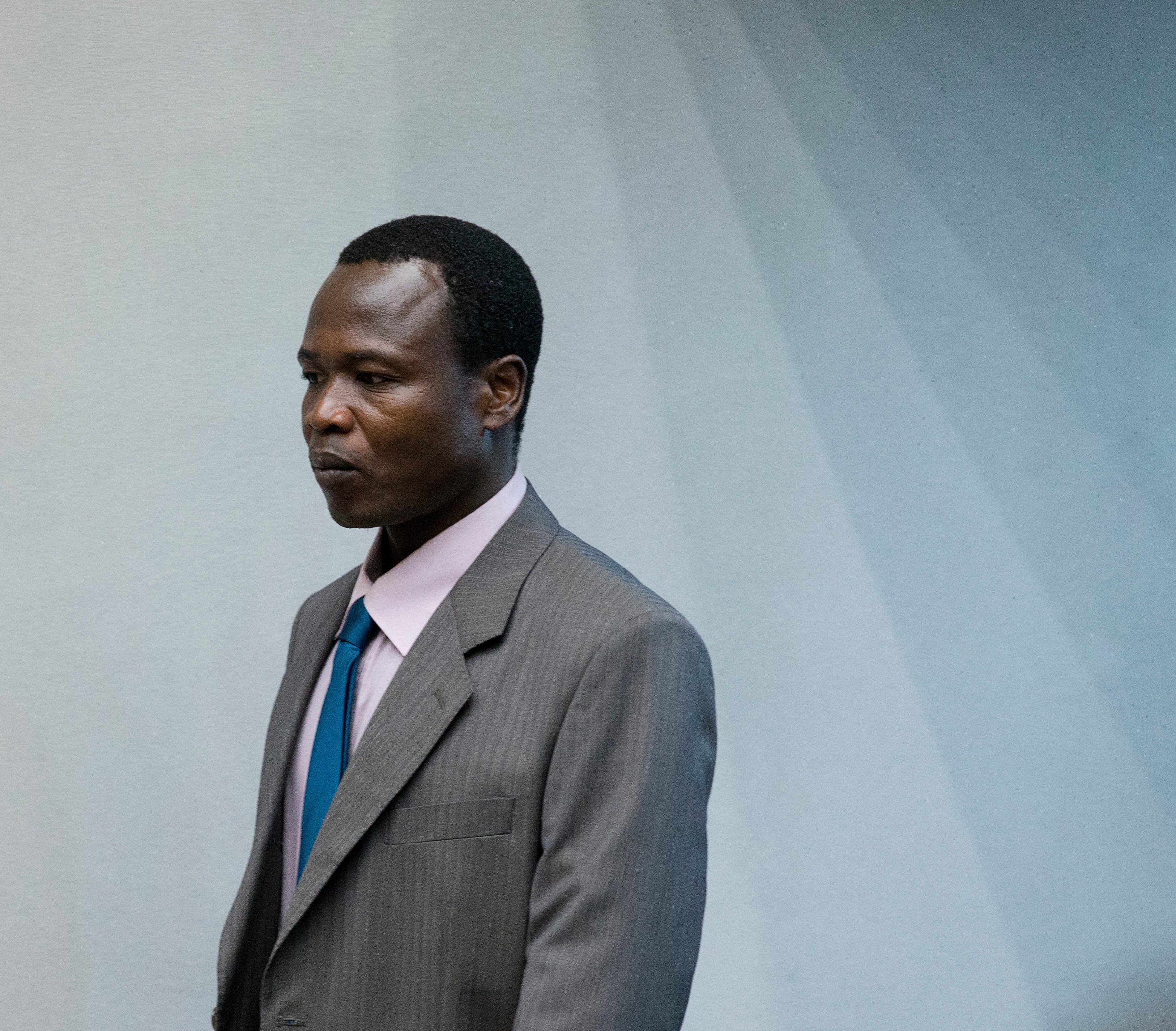Victim, perpetrator, or both? ICC verdicts in Uganda case
Judges at the International Criminal Court are passing judgment on a senior commander in the brutal Ugandan rebel group Lord’s Resistance Army who is charged with 70 crimes including murder, sexual slavery and using child soldiers

Your support helps us to tell the story
From reproductive rights to climate change to Big Tech, The Independent is on the ground when the story is developing. Whether it's investigating the financials of Elon Musk's pro-Trump PAC or producing our latest documentary, 'The A Word', which shines a light on the American women fighting for reproductive rights, we know how important it is to parse out the facts from the messaging.
At such a critical moment in US history, we need reporters on the ground. Your donation allows us to keep sending journalists to speak to both sides of the story.
The Independent is trusted by Americans across the entire political spectrum. And unlike many other quality news outlets, we choose not to lock Americans out of our reporting and analysis with paywalls. We believe quality journalism should be available to everyone, paid for by those who can afford it.
Your support makes all the difference.Judges at the International Criminal Court are passing judgment Thursday on a senior commander in the brutal Ugandan rebel group Lord's Resistance Army who is charged with 70 crimes including murder, sexual slavery and using child soldiers.
The verdicts will decide whether Dominic Ongwen was a victim of atrocities, or a perpetrator. Or both.
Defense lawyers cast Ongwen as a mentally damaged man who was effectively stripped of his free will by years of brutality in the ranks of the LRA after being captured on his way to school as a 9-year-old child.
“Mr. Ongwen is a victim and not a victim and perpetrator at the same time,” defense lawyers wrote in their closing brief at the end of the trial that began just over five years ago.
Prosecutors, however, called Ongwen “a pivotal figure in the LRA’s campaign of terror across northern Uganda in the early 2000s” and told judges that he planned and directed attacks that left dozens dead.
“He presided over a regime of human misery whereby children were forced to become murderers and sex slaves,” prosecutors argued in their final trial brief summing up their case.
Prosecutors charged Ongwen with commanding an LRA unit that attacked camps for displaced people in northern Uganda in 2003 and 2004.
The court's chief prosecutor, Fatou Bensouda, told judges at Ongwen's trial that his traumatic upbringing in the cult-like militia led by one of the world’s most-wanted war crimes fugitives, Joseph Kony could be a mitigating factor if he is convicted. But it could not be used as a defense against what Bensouda said was Ongwen's choice "to embrace the murderous violence used by the LRA and make it a hallmark of the attacks carried out by his soldiers.”
The Lord’s Resistance Army, which began in Uganda as an anti-government rebellion, is accused of atrocities including mass killings, recruiting boys to fight and keeping girls as sex slaves. At the peak of its power, the group was a notoriously brutal outfit whose members for years eluded Ugandan forces in the bushland of northern Uganda, where the civil war forced hundreds of thousands into camps for the internally displaced.
When military pressure forced the LRA out of Uganda in 2005, the rebels scattered across parts of central Africa. Reports over the years have claimed Kony was hiding in Sudan’s Darfur region or in a remote corner of Central African Republic, where LRA fighters continued to kill and abduct in occasional raids on villages, and where Ongwen was arrested in 2015.
Kony became internationally notorious in 2012 when the U.S.-based advocacy group Invisible Children made a viral video highlighting the LRA’s crimes. By that time the group had already been weakened by defections as it splintered into smaller, highly mobile groups led by commanders eager to evade capture. Uganda’s military estimated in 2013 that the group comprised no more than a few hundred fighters.
Invisible Children said this week that 108 children abducted by the LRA remain missing.
The United States and others announced they were ending a manhunt for Kony and his lieutenants in 2017, and Ugandan officials say they no longer consider the LRA a threat to national security.
___
Associated Press writer Rodney Muhumuza in Kampala, Uganda, contributed.